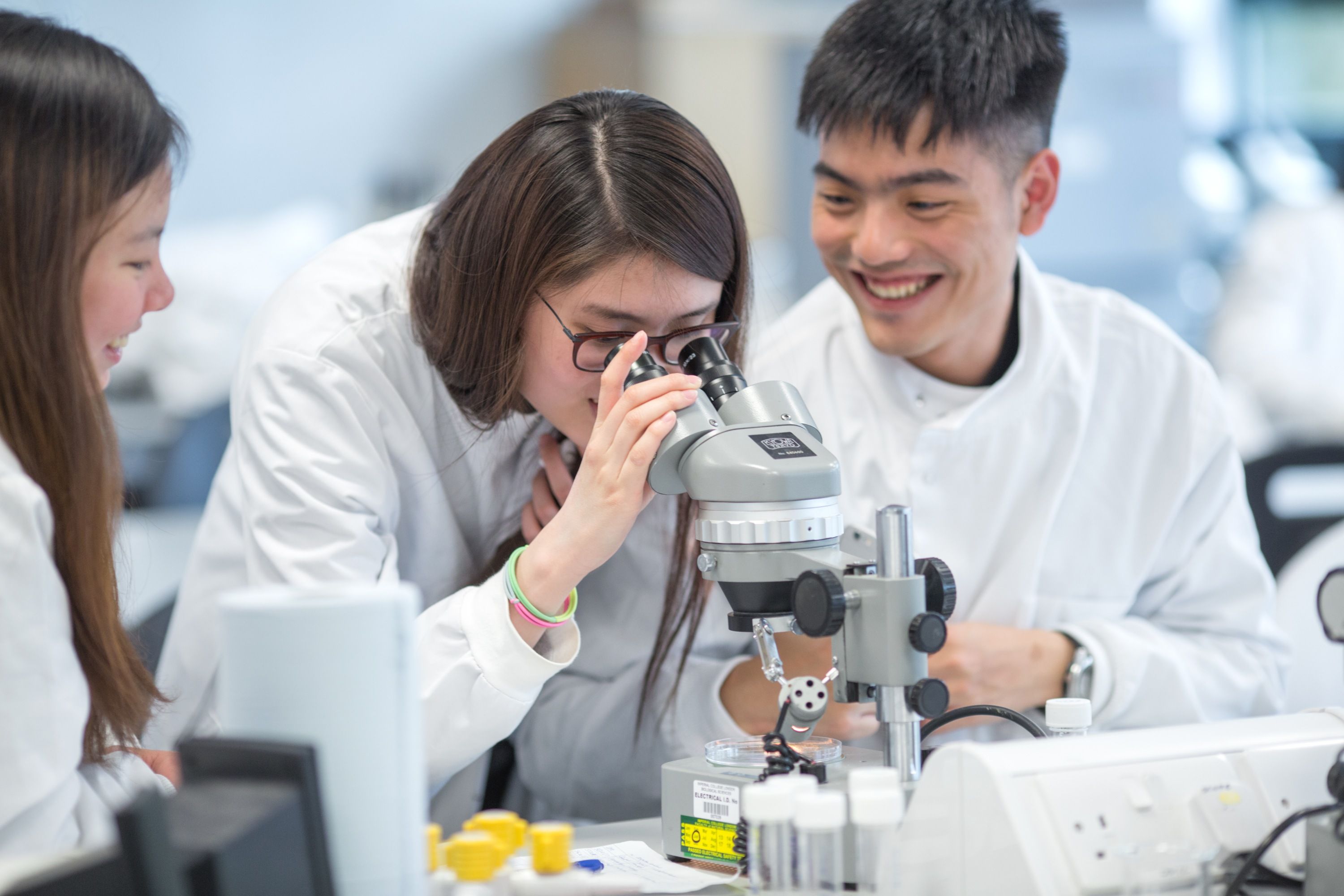
M.Sc Microbiology Course Fee, Eligibility, College, Syllabus
- Science
Notification:

Table of Content
M.Sc Microbiology is a postgraduate course of two years duration which includes topics such as Microorganisms, their function, structure, genetic makeup and their relation with other forms of life. Since microbiology is rapidly becoming popular in areas such as health, pharmacy, agriculture and study of the environment it could be understood that the world is actually needing more of microbiologists and this degree will enable a graduate to address some of the problems affecting the world. Graduates according to their knowledge either through research or applied science give directions to disease control, biotechnology and environmentally sound practice.
| Course Name | Master of Science in Microbiology |
| Course Level | Postgraduate |
| MSc Microbiology Duration | 2 Years |
| MSc Microbiology Admission Process | Merit based and Entrance Exam |
| MSc Microbiology Top Entrance Exam | BITSAT, DUET PG, TISS NET, CUET |
| MSc Microbiology Eligibility | Bachelor’s Degree in Microbiology with minimum mark of 55% or more from a recognized university. |
| MSc Microbiology Top Colleges | St. Xavier’s College, Fergusson College, St. Xavier’s College, St. Joseph’s College, Ramnarain Ruia Autonomous College |
| MSc Microbiology Fees | INR 5,000 - INR 3,00,000 |
M.Sc Microbiology students study bacteria, viruses, fungi, and protozoa. It covers microbiological ideas and methods and teaches students how to research microorganisms in varied settings, industry, and health. It offers students knowledge in microbial genetics, immunology, virology, and industrial microbiology. This also encompasses the Lab work and Research projects, development of skills in critiquing the various Microbial systems. Graduates can easily enter jobs relating to research, biotechnology, health care and many others; they can positively impact the progress of medical science, environmental protection and formulation of food standards.
The eligibility to do M.Sc in Microbiology from India is a B.Sc. in Microbiology or Biotechnology or Life Science from an approved university. An university offering this course normally requires at least a 50–60% average to apply. Some universities may also engage in written tests or interviews in view of the standard which they set for prospective students. Key requirements include:
M.Sc Microbiology program in India and takes two years and is spread over four semesters in general. For some universities there can be Field Studies or more research options. The structure of the course comprises of core courses, electives, and a research component:
In India, the starting salaries for the M.Sc. Microbiology are relative to the industrial vertical and company ladder. Here is the information regarding average starting salaries of different occupations:
As people get more experience and focus, their salaries tend to go up a lot in top study or leadership jobs.
| Top Colleges List | Tuition Fee | Colleges Catogories |
|---|---|---|
| Amity University Noida | INR 3.16 - 3.36 Lakh | Private College |
| Bharath Institute of Higher Education and Research | INR 1.50 Lakh | Private College |
| Chandigarh Univ | INR 2.38 - 2.48 Lakh | Private College |
| Graphic Era University | INR 2.36 Lakh | Private College |
| Lovely Professional Univ | INR 3.2 Lakh | Private College |
| JSS Mysore | INR 1.5 Lakh | Private College |
| Maharishi Markandeshwar University | INR 88,000 - INR 2.4 Lakh | Private College |
| Sri Ramachandra Institute of Higher Education and Re | INR 3.10 Lakh | Private College |
| VIT Vellore | INR 5.25 Lakh | Private College |
| Shoolini University | INR 1.60 Lakh | Private College |
| Jamia Millia Islamia | INR 1.05 Lakh | Govt.College |
| Delhi University | INR 480 | Govt.College |
| Aligarh Muslim University | - | Govt.College |
| PSG College of Arts and Science | INR 24,000 | Govt.College |
| University of Hyderabad | INR 13,540 - 14,900 | Govt.College |
| MCC Madras Christian College | INR 71,214 | Govt.College |
| University of Calcutta | INR 12,000 - 88,530 | Govt.College |
| UniPune | INR 6,500 | Govt.College |
| Andhra University Visakhapatnam | INR 1.05 - 2.8 Lakh | Govt.College |
| BBAU Lucknow | INR 6,000 - INR 1 Lakh | Govt.College |
Tuition fees vary with different learning institutions in the case of the M.Sc. Microbiology program for various reasons. Private universities cost more than those from government.
M.Sc Microbiology course in India has many subjects included in order to impart best knowledge about microorganisms and their utilities.Microbiology covers microbiological theories and techniques of study as well the study of methods of methods of studying behaviour, application and the importance of microorganisms to commerce and health.
| Semester 1 | Semester 2 |
|---|---|
| Molecular Biology | Virology |
| Microbial Metabolism | Bacteriology |
| Microbial Diversity | Mycology and Phycology |
| Enzymology | DNA Technology |
| Biostatistics | Bioinformatics (GE) |
| Lab | Lab |
| Semester 3 | Semester 4 |
| Environmental Microbiology and Waste Management | Host-Pathogen Interaction |
| Infection Immunity and Diagnostics | Food Microbiology |
| Microbial Genomics | Fermentation Technology |
| Intellectual Property Rights and Ethical Issues | Dissertation- II (DSE) |
| Labs | - |
The opportunities available for the graduates to proceed with their master's degree from the universities vary since it offers them a postgraduate direction for specialising in areas they need to venture into.
Microbiology is a fascinating subject and M.Sc. Microbiology opens the doors to numerous fields in the areas of research, health care system, agriculture and environmental study. The practical cross-disciplinary preparation prepares students for solving tasks associated with health, environment, and bioinformatics. This concentration on technology, research, and innovation in India will increase the need for microbiologists, making this program a good fit for emerging scientists and employed professionals.
How likely are you to recommend Medicaljagat.com to a friend or a colleague?